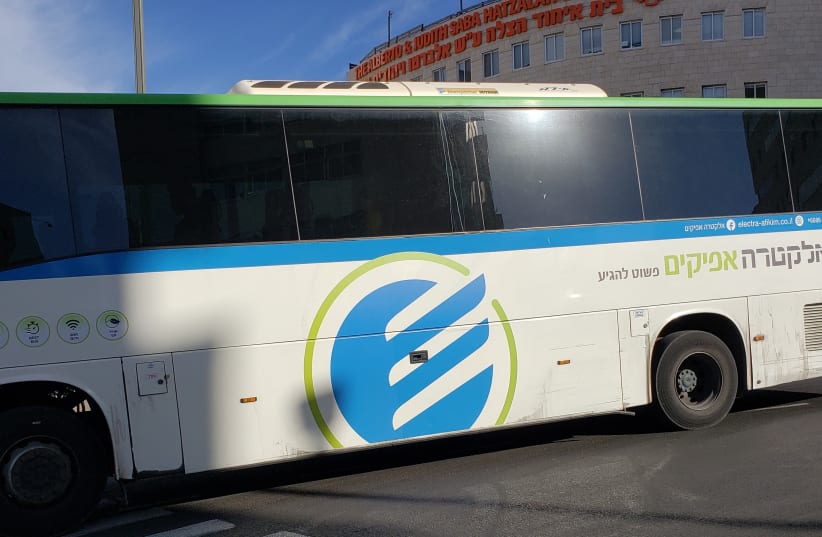The Ashdod 80 bus line run by Electra-Afikim doesn't allow women on the buses, according to a report by local Ashdod publication Ashdodi.
A 17-year-old girl in Ashdod tried to board an 80 bus but was told she couldn't board by the bus driver as it was a "bus for men only", according to the report.
The 80 line is listed on Israel public transport app Moovit and on other public transport websites as a public line. No website or app classifies the line as private or only for men. However, when Ashdodi spoke to the Electra-Afikim information center about the line, the center said there was no such line.
Meanwhile, a driver from a different Electra-Afikim line told Ashdodi that line 80 is only for men and that women would not be allowed onboard.
According to the report, a senior official at Electra-Afikim ordered and coordinated the line with the purpose of carrying haredi students to a Yeshiva in Ashdod.
Exclusions like this are illegal according to the Law Prohibiting Discrimination in Products, Services, and Entry to Entertainment Places and Public Places, 2000, with regards to "transportation services" section 3(a), which states explicitly that discrimination based on sex is prohibited on public transportation.
Electra-Afikim says this is not in keeping with company policy
Vice President of Electra-Afikim Shai Malka responded by saying that according to an internal investigation, a female passenger attempted to board the bus, leading the haredi passengers to shout "Shiksa" at her in an attempt to prevent her from boarding the bus.
The driver, who was not haredi, then informed her that it would be dangerous for her to board the bus and that for her safety she should not board. Malka then clarified that this "does not represent company policy," according to Walla.
Shiksa is a term originating in Yiddish and is used as a derogatory word for Jewish women who do not follow Orthodox religious rules. In direct translation, the term means a non-Jewish women.
Several city council members and the deputy mayor condemned the actions of the company. All of them reiterated that this is illegal and should not happen in Ashdod.

